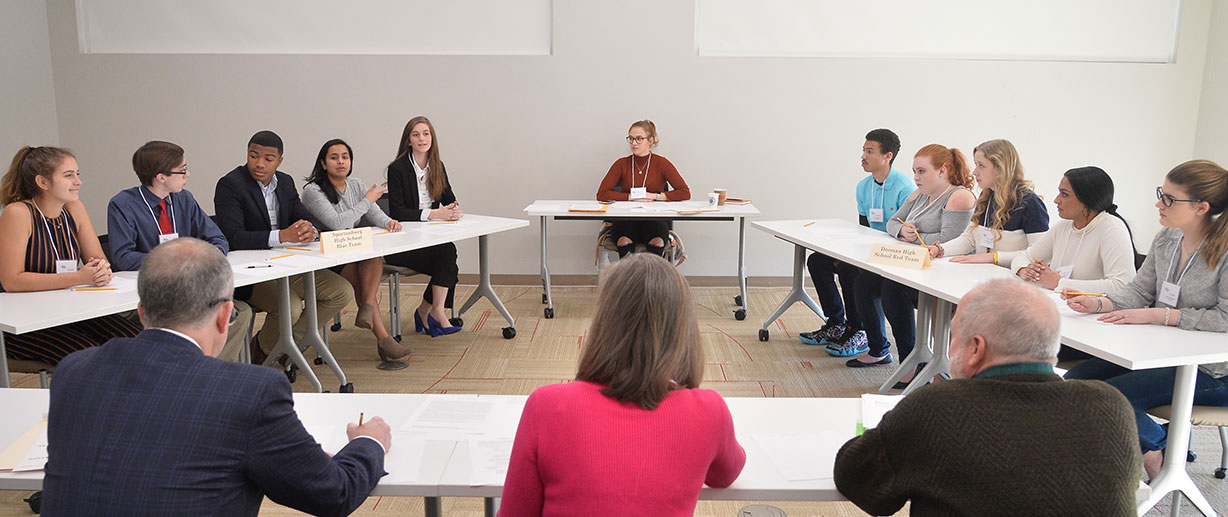Wofford hosts South Carolina Regional High School Ethics Bowl
On Jan. 26, 2019, Wofford hosted the inaugural South Carolina Regional High School Ethics Bowl in the Rosalind Sallenger Richardson Center for the Arts. The event was spearheaded by the Department of Philosophy and sponsored by Milliken and Co., the Mary Black Foundation, The Spartanburg County Foundation and Wells Fargo.
Ethics Bowl allowed 85 South Carolina high school students (10 teams from nine high schools) to demonstrate their ethical reasoning skills.
“Children are taught right from wrong, but knowing why something is right — thinking about the justification for an action, a law or a public policy — is a skill not often taught in school. Being able to analyze ethical issues is an essential skill, and starting the training in high school gives students a head start in preparation for college and adult life,” says Dr. Stephen Michelman, chair of Wofford’s Department of Philosophy and organizer of the event. “Ethics Bowl teaches students to take a philosophical perspective, to engage in informed conversation and to listen to others — all important skills for a 21st-century democracy.”
During this daylong event, students worked in a collaborative environment to create and present a clear understanding and analysis of the ethics of an assigned scenario. After taking a stance on the issue and providing their supporting evidence and reasoning, each team was evaluated on clarity, consistency and the awareness of multiple perspectives.
According to Michelman, Wofford faculty and current students joined community volunteers as moderators and judges during the Ethics Bowl. Wofford students also spent time in local high schools coaching teams in preparation for the competition.
“The goal is to demonstrate an ability to cooperate, explain and function efficiently with an opposing group,” says philosophy minor Cisco Ferré ’19 from Hilton Head, S.C. “The competition helps teach young people to master the temperance of discussion — to show a student how they may be a master of their morality while maintaining polite conversation.”
Ferré participated in Ethics Bowl as a moderator for three regular rounds and an additional round of the semi-finals. He experienced first-hand the dedication and passion the high school students demonstrated for discussing ethical issues. He believes that philosophical training and the study of ethics offers a way to ease conflict.
“Too often, I find that people have these long conversations about something that they disagree on,” he says. “These issues are solved when you ask questions such as ‘Where is it that we disagree?’ or ‘Where can we agree?’”
The study of ethics also helps high school students prepare for college.
“Being able to have discussions outside of the classroom about difficult topics — for example about personal relationships, social media, political gerrymandering and gun control — in a calm and respectful manner is very beneficial,” says Emma Fletcher ’19, an art history and humanities major from Omaha, Neb. “Thinking about these topics on a deeper level helps students develop valuable skills that they will need in the future.”
Dr. Anne Rodrick, professor of history at Wofford, served as a judge for the competition. She was impressed with the “grace and skills and knowledge of all the teams competing. … Ethics Bowl is designed to get students to dig deep and study questions from multiple angles —questions that are rooted in the real world. The competition also asks team members to work in a spirit of inclusiveness and collegiality: they need each other, they depend on each other and they learn together.”
By Hayley Younginer ’19
